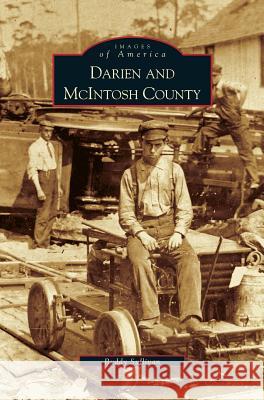Darien and McIntosh County » książka
Darien and McIntosh County
ISBN-13: 9781531603830 / Angielski / Twarda / 2000 / 130 str.
From 1870 to 1920, McIntosh County, Georgia, was one of the most energetic communities on the southern coast. Its county seat, Darien, never had a population of more than 2,000 residents; yet, little Darien was, for a considerable time, the leading exporter of yellow pitch pine timber on the
Atlantic Coast. Burned to ashes during the Civil War, Darien
rose up and, with its timber booms and sawmills, took its place among the leading towns of the "New South" of the late nineteenth century. In this unique photographic retrospective of Darien and McIntosh County, over 200 images evoke generations past of dynamic, hard-working people. Pictured within these pages are timber barons, sawmill workers, railroad builders, and shrimp fishermen. They are depicted among views of the buildings and structures associated with an era that was the most active in the recorded history of the community, which dates back to the earliest days of the Georgia colony in 1736.
From 1870 to 1920, McIntosh County, Georgia, was one of the most energetic communities on the southern coast. Its county seat, Darien, never had a population of more than 2,000 residents; yet, little Darien was, for a considerable time, the leading exporter of yellow pitch pine timber on the
Atlantic Coast. Burned to ashes during the Civil War, Darien
rose up and, with its timber booms and sawmills, took its place among the leading towns of the "New South" of the late nineteenth century. In this unique photographic retrospective of Darien and McIntosh County, over 200 images evoke generations past of dynamic, hard-working people. Pictured within these pages are timber barons, sawmill workers, railroad builders, and shrimp fishermen. They are depicted among views of the buildings and structures associated with an era that was the most active in the recorded history of the community, which dates back to the earliest days of the Georgia colony in 1736.











